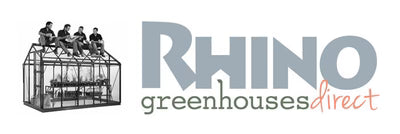Victims as we are to our Great British weather, with its glorious ups and soggy downs, there is a lot of rainwater at our disposal. And I’m wondering if rainwater is really so much better for my plants, as is generally agreed.
Many of us will use tap water when hydrating our leafy friends, usually because of convenience. For those of us lucky enough to have greenhouses with efficient gutters or a water butt, whenever the heavens open, all we need do is sit back and watch the water level rise.
The Problem with Tap Water
Hard Water Vs Soft Water
Of course, there are arguments for and against, butt (excuse the pun) what it often comes down to is your local water quality.
If you’re in an area with hard water, (about 60% of us in the UK) higher levels of calcium and magnesium carbonates will have an effect on your plants. Minerals are of course good in the right dosage, but too much will hurt more than they help. Too much of these minerals will turn your soil into a high alkaline environment that some of your plants won’t enjoy.
Now, you might be thinking, “I’ve got soft water coming out of my taps, so that must be ok!” I’m afraid not. Soft water is normally treated with sodium or potassium, making the water saltier. It is not advisable to exclusively water your plants with soft water. The high salt levels will really cause havoc with the plant’s own regulatory system, by fooling it into thinking it has taken up more water than it actually has. This leaves your plants feeling thirsty, even after a good watering. And worse still, if you use soft water on your beds continually, the salt will build up, making the entire area inhospitable.
So the short answer here is, hard water is far better for your plants than soft water. But neither is great.
But don’t panic. In all likelihood, your tap water, whether hard or soft, is unlikely to cause critical harm to your plants with occasional or intermittent watering. The key, really, is to make sure that rainwater is used in tandem with tap water whenever possible.
Rainwater Is Best
Which brings us to the multitude benefits of rainwater, when watering your plants:
Rainwater has a neutral pH
When water evaporates, anything nasty is left behind and in its brief return to earth, it will pick up minimal contaminants, making it fresher and cleaner than the water that’s been stagnating down at ground level.
Rainwater is free
Compared to running your taps, there is no cost to collecting rainwater (besides the cost of a decent bucket or water butt). It’s self-replenishing too, which means less trips back and forth from tap to veg patch.
Rainwater is eco-friendly
Besides the fact that some tap water has the ability to upset your leafy friends, human plumbing is also a massive strain on energy resources and on local ecosystems. Rain is the world’s natural irrigation system. Let’s do our best to use what has been gifted to us.
So even if you haven't got a water butt, just get a good sized bucket, pop it outside and wait. It's summer in Blighty, remember, so you won't have to wait long.
All Rhino Greenhouses are fitted with integral gutters and downpipes, so you can start collecting delicious rainwater as soon as your greenhouse is installed.




